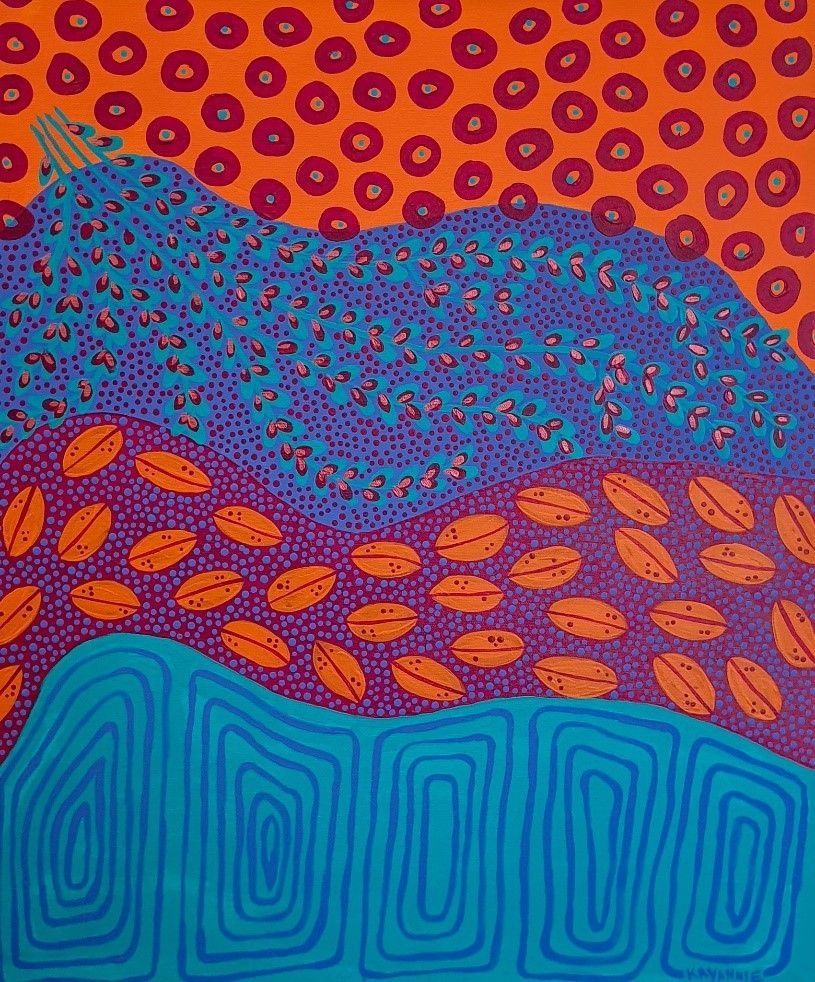‘Deep Histories, Indigenous Futures’, the second Kathleen Fitzpatrick Workshop of the ARC Laureate Project ‘Rediscovering the Deep Human Past’, brought together postgraduate students and early career researchers from across the country. Indigenous histories address diverse audiences, speaking to local families and communities, to broader national and international conversations. These histories speak variously to policy change or to political contestation, sometimes to public memory or national mythologies. And they are formed through relationships between peoples and Country that were the focus of discussion.
In these times of lockdowns and border closures, the workshop was organised into a series of online events, providing participants with opportunities both to hear from and be in conversation with leading thinkers who were generous in sharing their experience and knowledge, and to converse with other researchers in the field from across Australia.
The workshop opened with a public webinar Telling History through Country’, co-hosted with ANU’s Centre for Environmental History. Chaired by Rebe Taylor, panellists included Ann McGrath, Peter Read, Lorina Barker, Eliza Kent and Michael Brogan. Country is more than the backdrop for history; it is an active participant within both its stories and their telling. So we explored questions of in what ways might Country speak? In particular, panellists spoke to their work on Country at Mulgoa, Western New South Wales, and at the Willandra Lakes. We were also encouraged to support Western NSW Indigenous communities given the COVID emergency:
In the afternoon, Mike Jones led a workshop, ‘Exploring digital tools and techniques’, providing the postgraduates and ECRs with an overview of the possibilities, and the challenges, of working digitally. The session started with some of the fundamentals, from file naming, file formats, and structuring data to tips for evaluating digital tools, then moved on to basic tools for capturing research data, and for managing archival and other images. Workshop participants were then invited to take a closer look at Voyant (an online text analysis tool) and StoryMap (which helps present text, photographs, and audio-visual material associated with particular points on a map or large image). The session concluded with some ideas for exploring digital methods in more detail. Participants asked insightful questions throughout, and many took the opportunity to share useful tips with their peers.
The second day began with presentations on ‘First Nations Histories towards Social Justice and Institutional change’ delivered by three key speakers who have been at the centre of movements for institutional, national, and international change, and who addressed the role of historical research in creating political change. Maramanindji woman Sonia Smallacombe, Bidjara/Birri Gubba Juru woman Professor Jackie Huggins, and Yawuru man Professor Peter Yu each emphasised the need for researchers to provide critical analyses of policy and its implementation, and to conduct this research in genuine partnership with communities. Universities, we were reminded, could have done a lot more for First Nations communities, and there is a need for research that moves beyond the political rhetoric to connect research with the lived experience of the people researchers serve. These themes emerged further in discussion, as participants described the costs of heartbreaking urgency of many of these questions, in COVID-stricken Western NSW and for those subjected to ongoing police violence and homicide.
Professor Yu challenged participants to identify their contribution that has a real impact in the community, and it was this question that animated the following workshop, facilitated by the co-editors of ‘Aboriginal History’, Yamatji woman Dr Crystal McKinnon and non-Indigenous man Dr Ben Silverstein. The workshop, titled ‘Who writes, whose stories?’, provided participants with an opportunity to consider and talk about their relationships to place and to people, and to reflect on the way they situated or positioned themselves. Over a series of discussions, participants spoke about issues of ethics, accountability, and their relationships to the work they do, the communities with whom they work, and the way their work spoke to the concerns of the expert panels.
We’re looking forward to further collaborations with the many talented researchers who attended the workshop.


